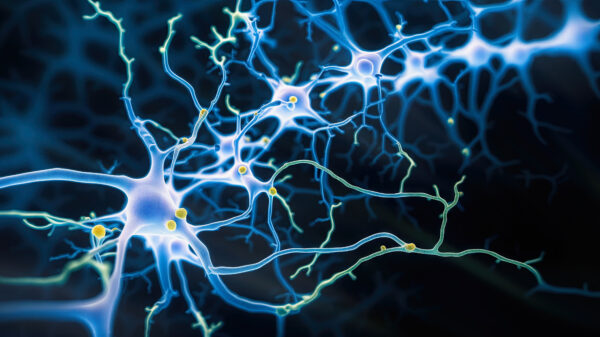Kynurenine Pathway Neuro-Inflammation Blood Test
$299.00
The Kynurenine Pathway, a metabolic pathway for the amino acid tryptophan, plays a crucial role in neuroinflammation and brain function. Activation of this pathway results in the production of various metabolites, including kynurenine, quinolinic acid, and kynurenic acid, which have diverse effects on neuronal function and inflammation.
Neuroinflammation, characterized by the activation of immune cells and the release of pro-inflammatory cytokines in the brain, is implicated in the pathogenesis of neurological disorders, including Alzheimer’s disease, Parkinson’s disease, and depression. The Kynurenine Pathway is closely linked to neuroinflammation, as its metabolites can modulate immune responses and influence the balance between neurotoxicity and neuroprotection.
For example, quinolinic acid, a metabolite of the Kynurenine Pathway, is an excitotoxin that can induce neuronal damage and contribute to neurodegenerative processes. On the other hand, kynurenic acid acts as a neuroprotective agent by antagonizing glutamate receptors and reducing excitotoxicity.
Imbalances in the Kynurenine Pathway, such as increased production of neurotoxic metabolites or decreased levels of neuroprotective metabolites, have been implicated in the pathophysiology of several neurological and psychiatric disorders.
Kynurenine Pathway Neuro -Inflammation Blood Test: 18 Analytes tested: 6 Tryptophan Metabolites(Tryptophan, Kynurenine, Tryptophan/Kynurenine Ratio, Quinolinic Acid), 5-Hydroxytryptophan (5-HTP), Melatonin 6 Inflammation & Cytokines BDNF (Brain-Derived Neurotrophic Factor), CRP (C-Reactive Protein), IL-1β (Interleukin-1β), IL-6 (Interleukin-6), IL-10 (Interleukin-10), TNFα (Tumor Necrosis Factor-alpha), 3 REDOX GSH/GSSG, NAD+/NADH, iNOS 3 Co-Factors (Magnesium, Vitamin B2 (Riboflavin), Vitamin B6)
Description
The Kynurenine Pathway, a metabolic pathway for the amino acid tryptophan, plays a crucial role in neuroinflammation and brain function. Activation of this pathway results in the production of various metabolites, including kynurenine, quinolinic acid, and kynurenic acid, which have diverse effects on neuronal function and inflammation.
Neuroinflammation, characterized by the activation of immune cells and the release of pro-inflammatory cytokines in the brain, is implicated in the pathogenesis of neurological disorders, including Alzheimer’s disease, Parkinson’s disease, and depression. The Kynurenine Pathway is closely linked to neuroinflammation, as its metabolites can modulate immune responses and influence the balance between neurotoxicity and neuroprotection.
For example, quinolinic acid, a metabolite of the Kynurenine Pathway, is an excitotoxin that can induce neuronal damage and contribute to neurodegenerative processes. On the other hand, kynurenic acid acts as a neuroprotective agent by antagonizing glutamate receptors and reducing excitotoxicity.
Imbalances in the Kynurenine Pathway, such as increased production of neurotoxic metabolites or decreased levels of neuroprotective metabolites, have been implicated in the pathophysiology of several neurological and psychiatric disorders.
Kynurenine Pathway Neuro -Inflammation Blood Test: 18 Analytes tested: 6 Tryptophan Metabolites(Tryptophan, Kynurenine, Tryptophan/Kynurenine Ratio, Quinolinic Acid), 5-Hydroxytryptophan (5-HTP), Melatonin 6 Inflammation & Cytokines BDNF (Brain-Derived Neurotrophic Factor), CRP (C-Reactive Protein), IL-1β (Interleukin-1β), IL-6 (Interleukin-6), IL-10 (Interleukin-10), TNFα (Tumor Necrosis Factor-alpha), 3 REDOX GSH/GSSG, NAD+/NADH, iNOS 3 Co-Factors (Magnesium, Vitamin B2 (Riboflavin), Vitamin B6)
Kynurenine Pathway of Tryptophan Metabolism and Neuroinflammation
Kynurenine Pathway of Tryptophan Metabolism and Neuroinflammation
The kynurenine pathway (KP) of tryptophan metabolism plays a crucial role in the balance between neuroprotection and neurotoxicity. Dysregulation of this pathway has been associated with several neurodegenerative and neuropsychiatric disorders, largely due to the potential role of KP metabolites in mediating neuroinflammation.
- Initiation of the Pathway: The metabolism of tryptophan via the kynurenine pathway begins with its conversion into kynurenine. This step is catalyzed by two primary enzymes: indoleamine 2,3-dioxygenase (IDO) and tryptophan 2,3-dioxygenase (TDO). Both enzymes can be induced by pro-inflammatory stimuli, especially IDO, which is upregulated by pro-inflammatory cytokines like interferon-gamma (IFN-γ).
- Neuroactive Metabolites:
- Kynurenic Acid (KYNA): Produced in astrocytes, KYNA acts as an antagonist at NMDA and α7 nicotinic acetylcholine receptors. It has neuroprotective effects but, in elevated concentrations, might also contribute to cognitive dysfunctions.
- Quinolinic Acid (QUIN): This is synthesized in microglia and acts as an NMDA receptor agonist. Elevated levels can lead to excitotoxicity, which is damaging to neurons and is associated with several neurodegenerative conditions.
- Neuroinflammation: An imbalance favoring the production of QUIN over KYNA can contribute to neuroinflammation. QUIN’s agonistic action on NMDA receptors can lead to excitotoxic neuronal death. Moreover, QUIN can generate reactive oxygen species (ROS) and exacerbate inflammation. Chronic inflammation can upregulate IDO, leading to a sustained increase in kynurenine metabolites, which further skews the balance towards neurotoxic effects.
- Role in Neurodegenerative Diseases: Dysregulation of the kynurenine pathway is observed in various neurodegenerative conditions, including:
- Alzheimer’s Disease (AD): Elevated levels of QUIN and reduced KYNA levels have been reported in the brains of AD patients. QUIN can promote amyloid-beta aggregation, a hallmark of AD pathology.
- Parkinson’s Disease (PD): KP dysregulation is suggested to be involved in the dopaminergic neuronal loss characteristic of PD.
- Huntington’s Disease (HD): Elevated QUIN levels have been observed in the brains of HD patients and are believed to contribute to the striatal neurodegeneration seen in HD.
- Neuropsychiatric Implications: Changes in the KP have also been associated with neuropsychiatric disorders like depression, schizophrenia, and bipolar disorder. The balance between KYNA and QUIN can influence neurotransmission, synaptic plasticity, and neural integrity, potentially leading to mood and cognitive disturbances.






